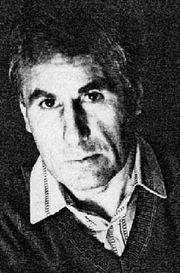
Paul Tholey
Encyclopedia

Gestalt psychology
Gestalt psychology or gestaltism is a theory of mind and brain of the Berlin School; the operational principle of gestalt psychology is that the brain is holistic, parallel, and analog, with self-organizing tendencies...
, and a professor of psychology and sports science
Sports science
Sport science is a discipline that studies the application of scientific principles and techniques with the aim of improving sporting performance...
.
Paul Tholey started the study of oneirology
Oneirology
Oneirology is the scientific study of dreams. Current research seeks correlations between dreaming and current knowledge about the functions of the brain, as well as understanding of how the brain works during dreaming as pertains to memory formation and mental disorders...
in an attempt to prove that dreams occur in color. Given the unreliability of dream memories and following the critical realism
Critical realism
In the philosophy of perception, critical realism is the theory that some of our sense-data can and do accurately represent external objects, properties, and events, while other of our sense-data do not accurately represent any external objects, properties, and events...
approach, he used lucid dreaming
Lucid dreaming
A lucid dream is a dream in which one is aware that one is dreaming. The term was coined by the Dutch psychiatrist and writer Frederik van Eeden . In a lucid dream, the dreamer can actively participate in and manipulate imaginary experiences in the dream environment. Lucid dreams can seem real and...
as an epistemological tool for investigating dreams, in a similar fashion to Stephen LaBerge
Stephen LaBerge
Stephen LaBerge is a psychophysiologist and a leader in the scientific study of lucid dreaming. In 1967 he received his Bachelor's Degree in mathematics. He began researching lucid dreaming for his Ph.D. in Psychophysiology at Stanford University, which he received in 1980...
. He devised the reflection technique for inducing lucid dreams, consisting in continuously suspecting waking life to be a dream, in the hope that such a habit would manifest itself during dreams.
Title=
Paul Tholey's research included the examination of the cognitive abilities of dreamers, as well as the cognitive abilities of dream figures. In the latter study, nine trained lucid dreamers were directed to set other dream figures arithmetic and verbal tasks during lucid dreaming (Cognitive abilities of dream figures in lucid dreams, 1983). Dream figures who agreed to perform the tasks proved more successful in verbal than in arithmetic tasks.

